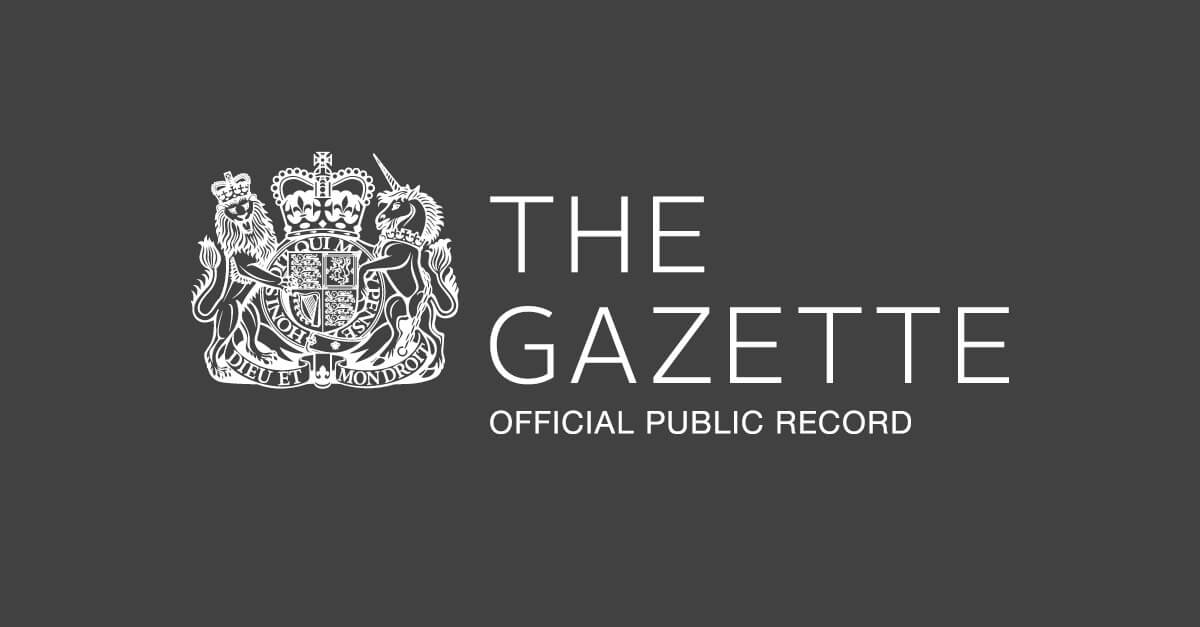A Thorough Evaluation of the Legal Commitments Surrounding Gazette Notification Publication
The world of gazette notice publication is a maze of legal complexities that require thorough focus. From the rigorous legal requirements regulating the material of notices to the implications of non-compliance, navigating this landscape is no unimportant task. Recognizing the key regulation that dictates these obligations is paramount for entities obligated to distribute notifications with this authorities network. The complexities expand past mere legal commitments, touching upon best methods that can reinforce compliance initiatives. As we unwind the layers of lawful obligations bordering gazette notice magazine, a comprehensive evaluation is critical to grasp the gravity of these duties and the effects of stopping working to follow them.
Lawful Requirements for Gazette Notifications

Lawful needs for Gazette notices determine the details standards that should be satisfied for the publication of official notices in the Gazette. One key requirement is the precise and complete disclosure of info in the notice.
Furthermore, legal demands usually mandate the timely submission of notices to the Gazette. Timeliness is important to make sure that the details gets to the intended receivers within a practical duration, enabling them to take required actions or make informed choices immediately. Failure to follow these timelines may cause legal repercussions or provide the notification inefficient.

Ramifications of Non-Compliance
Non-compliance with the regulations established forth for Gazette notice publication can result in lawful effects, financial fines, and reputational damage for the entity or private accountable for the publication. Failure to release notifications in the Gazette within the specified duration or erroneously distributing info can lead to challenges in enforcing legal rights, legal responsibilities, or legal process. Additionally, falling short to satisfy the lawful commitments bordering Gazette notice publication could result in the invalidation of the notice itself, providing it legitimately ineffective.
Secret Regulations Governing Magazine
Offered the important ramifications of non-compliance with Gazette notice publication requirements, understanding the helpful hints vital regulation controling this process is vital for making certain lawful adherence and preserving openness. In addition, particular fields might have their very own guidelines concerning notice magazine, such as ecological agencies calling for particular news to be made public for openness and liability purposes. Understanding these legal frameworks is critical for companies and people responsible for providing Gazette notifications to stay clear of lawful effects and support the concepts of great governance.
Entities Bound to Publish Notices
Entities liable for the publication of Gazette notices play a vital duty in guaranteeing openness and legal compliance within the structure of governmental guidelines. Usually, these entities consist of federal government departments, regulative bodies, and official gazette workplaces. Federal government departments are frequently entrusted with publishing notices relating to brand-new legislations, regulations, policies, and public announcements to notify residents and other stakeholders concerning adjustments that might influence them. Regulatory bodies, on the various other hand, are accountable for publishing notices associated with licensing, conformity requirements, enforcement actions, and other regulatory issues within their corresponding industries. Authorities gazette workplaces work as the main systems for the magazine click to investigate of legal notices at the nationwide, state, or neighborhood levels, guaranteeing that such details is available to the public.
These entities are bound to publish notices without delay and properly to adhere to lawful needs and maintain the principles of openness and accountability in administration. Failing to publish needed notifications in a prompt manner might bring about legal effects, weakening the credibility and performance of the regulative structure. It is important for these entities to satisfy their commitments diligently to preserve public depend on and ensure that stakeholders are notified of significant lawful developments.
Best Practices for Compliance
To make sure adherence to legal responsibilities surrounding Gazette notice publication, it is essential for organizations to carry out ideal practices for conformity that improve openness and liability in disseminating critical info to stakeholders. One of the essential best techniques is to develop clear internal procedures and standards for Gazette notice publication. This includes assigning duty to particular people or divisions, setting timelines for preparing and assessing notifications, and making sure conformity with publication needs.

Final Thought
To conclude, understanding the lawful obligations surrounding gazette notice publication is important for entities to abide by key regulations. Failure to publish notifications in the gazette can have significant effects, consisting of lawful consequences. It is essential for organizations to follow ideal practices for compliance to guarantee they satisfy their obligations under the regulation. Conformity with these requirements is necessary to maintain openness and maintain the rule of law.